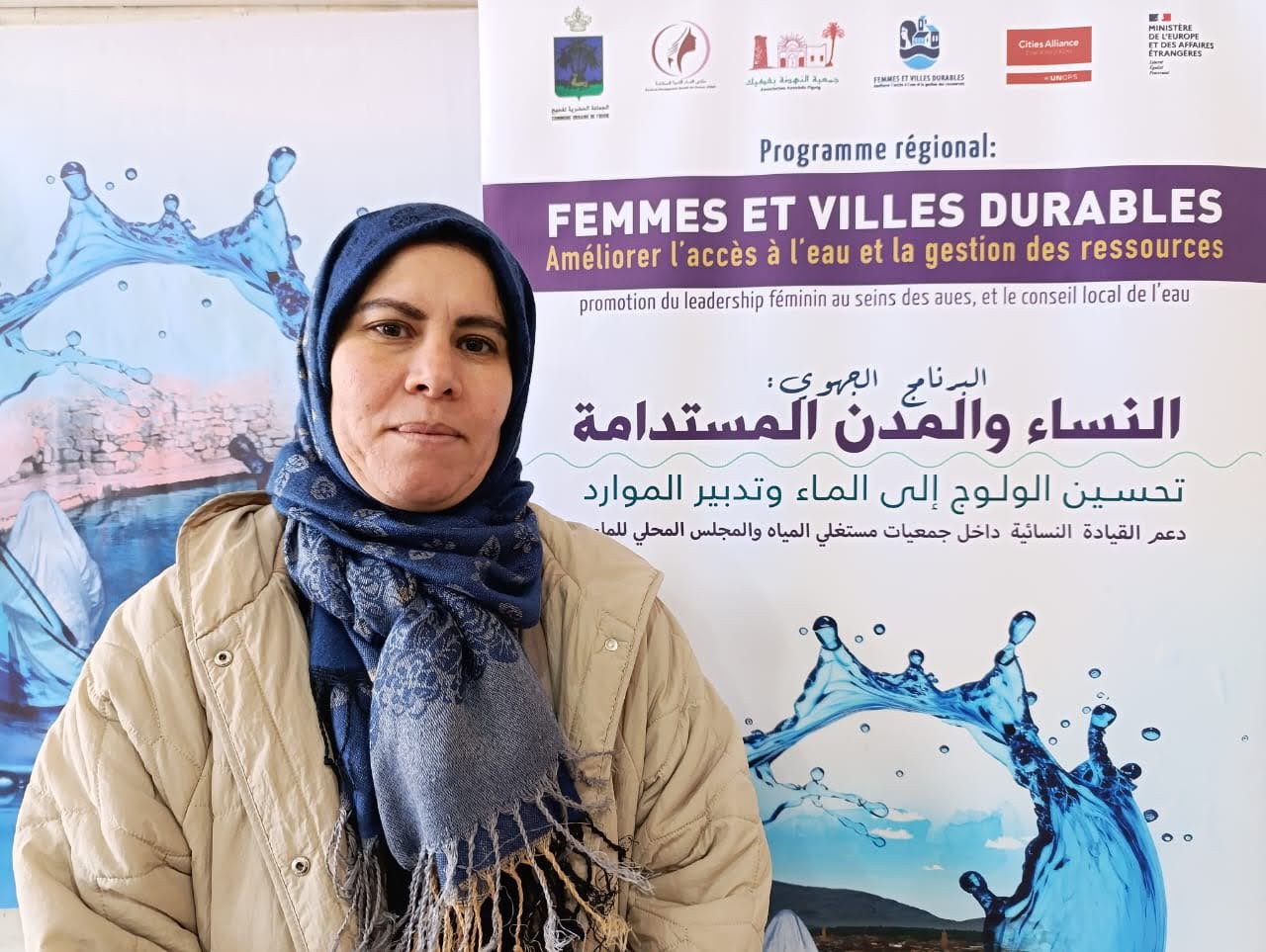Tunisia, and its regions and cities in its interior, in particular, are especially vulnerable to climate change. Already today, climate change and environmental degradation are putting strong pressure on water resources, agricultural production, ecosystems, health and well-being. These stresses pose a significant threat to inclusive and sustainable development.
The government of Tunisia has committed to tackling climate change and developing a climate-resilient economy by reducing total GHG emissions across sectors by 41 per cent by 2030. Cities Alliance is working with the cities of Beja, Jendouba and Tataouine to transform their energy use.
By replacing public lighting in Beja and Tataouine with energy-efficient LED lights, these cities made considerable savings (30-50 per cent) which were reallocated to other priorities while simultaneously contributing to Tunisia’s commitment towards the Paris Agreement to cut emissions and adapt to climate impacts.
I’m particularly proud that based on the initial experience we extended energy-efficient streetlighting into the city's disadvantaged, peripheral neighbourhoods, benefiting those often left out. The savings will allow us to extend other municipal services into these areas too.
These cities also introduced intelligent street lighting control systems, which further reduce consumption based on traffic hours and performance monitoring. For this initiative, Cities Alliance has closely collaborated with the National Agency for Energy Management (ANME), the Local Government Development Bank (CPSCL), international financing partners and private investors. We are also developing an innovative PPP financing mechanism.
Energy audits to better prioritise investments
An energy audit currently underway analyzes the energy performance of the public lighting network of three cities ( 20,000 light points in total) and provides recommendations for targeted actions to minimize energy consumption and improve the quality and safety of public lighting. By extension they can improve quality and safety of public spaces throughout the day for more than 200,000 inhabitants, and women and girls in particular.
Before the project, the absence of adequate street lighting made the area unsafe for women and girls. After dark, thefts and burglaries were common. It also meant that commercial activities were limited once the sun had set.
Leila Zina, Architect, municipality of Msaken
'Thanks to this project, we have been able to install LED streetlights here. Residents’ feedback has been overwhelmingly positive. They feel much safer and street life has become livelier after dark, allowing them to do grocery shopping and other activities. It’s been a pilot experience for us. We are motivated to extend LED streetlighting into other neighbourhoods so that over time all residents of Msaken can benefit from it', said Zina.
The evidence based and recommended actions resulting from the audits provide decision-makers and technical staff with the information they need to budget for and prioritize investments in the cities’ public lighting network. A scenario and action plan allow for progressive energy transition over the next 3-5 years, tailored to their implementation capacities.
Based on the selected scenario, Cities Alliance will conduct a financial analysis on the cost of the optimizations, the potential returns on investment, and a review of existing financing modalities in the form of state grants, credits and subsidies such as via the Energy Transition Fund and other funding sources. This support allows city authorities to choose the appropriate financing mechanisms for their chosen path to energy transition.
Putting the sustainable energy transition into action: efficient street lighting in Beja and Tataouine
In parallel, Cities Alliance is already supporting the city of Beja and Tataouine in launching their sustainable energy transitions with action on the ground. In a first instance, the authorities in Beja installed energy-efficient LED street lights on three arterial roads in the city centre. In Tataouine, LED and solar-powered lights, were installed around a public park.
Both cities introduced intelligent street lighting control systems allowing them to further reduce consumption by 15 per cent by adapting light brightness according to traffic hours and performance monitoring. They enable city staff to control point by point, detect breakdowns through alert messaging, monitor real-time consumption, predict the next year’s consumption and apply energy performance indicators and monitoring models.
The cost for replacing the traditional lights with LED will be recovered within 4-5 years of operation thanks to the savings made in electricity consumption.
Encouraged by the positive feedback from residents and now equipped with the capacities to move forward, city authorities in Beja are planning to install other, larger sets of LED street lights in other neighborhoods.
Our energy bill already makes up 25 per cent of the city’s budget, and keeps increasing year by year. It prevents us from investing more money into those infrastructures our citizens demand.
Finance officer, city of Tataouine





